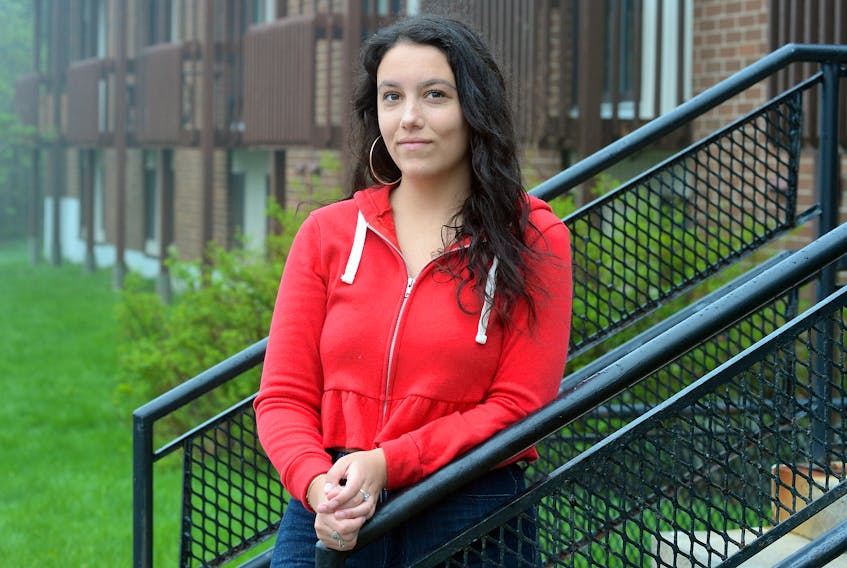ST. JOHN'S, N.L. — As riots against police brutality rage in more than 27 cities in the United States, those with experience fighting against and feeling the pressure of racism say it’s time to truly address racism in Newfoundland and Labrador.
George Floyd, a black man in Minneapolis, Minn., was killed last week by four police officers — one officer put his knee on Floyd’s neck, while three others looked on. The killing of yet another unarmed black man in the United States has resulted in a week of protests throughout the country against police brutality.
According to an August 2019 report by the University of Michigan, the sixth-highest cause of death for a black man in the United States is the police.
As sympathetic protests take place across Canada, those who spoke with The Telegram say while the issue of racism is not at the level seen in the United States, it’s very real in the country and in Newfoundland and Labrador.
Related
- Newfoundlanders and Labradorians living in United States horrified at political situation
- EDITORIAL: A harsh lesson from the US
- Rally against racism planned for Wednesday at Cape Breton Regional Police station
- Thousands take a knee in downtown Halifax in support of anti-racism
Jim Jubabir is a fourth-year student at Memorial University, originally from Dhaka, Bangladesh.
In his experience, Jubabir says, racism is not as pronounced in Newfoundland and Labrador as in other places, but he still sees evidence of bias in the population.
“If I’m walking down the street, say on one side of the street, I see someone whose coming towards me on the same side of the street — I have noticed this a couple of hundred times — they’ll switch sides of the street,” he said.
“They switch sides just because of me. Just because I was walking there. That’s the kind of subtle racism. People of colour, we know when that happens. We know when someone’s discriminating against us or being a racist. We know it. Most of the time, we just choose to ignore it. We’re in a foreign land, what’s the point, right?”

Jubabir says one way to understand other cultures and gain an understanding of the unique issues they face is to consume more diverse cultural products. He says reading books, watching movies or eating food made by people of colour can open one’s perspective on the world.
“Watch international movies. I’m a big fan of films. I talk about movies all the time. Watch “Parasite,” go watch any film that is not from North America. Even European films would do. They have a lot of cultural bindings and mixes in Europe as well,” he said.
“If you watch them, you’d start understanding their perspective. Start understanding our perspective. Introducing books can be a very important thing as well. Start introducing books from all around the globe. There’s a lot of big writers in Nigeria who write in English.”
Speaking up
What is going on in the U.S. is horrific, but Aleisha Rodriguez said people locally can help by not staying silent when encountering racist remarks directed at any group or culture.
The St. John’s woman, an education student at Memorial University, shared an experience on the Anti-Racism Coalition of Newfoundland and Labrador (ARC-NL) Facebook page. She recounted recently speaking up to a group of peers when the N-word was used, and explaining to them why it is never acceptable.
“Use your voice to speak up. Let them know when their words are not appropriate,” she said.
“Understand that silence is ignorance in those types of situations." — Aleisha Rodriguez
Referring to that incident and another occasion when she spoke up, the people in the groups remained silent, she said.
“Understand that silence is ignorance in those types of situations,” said Rodriguez.
She said if people want to help out, a good way is to donate to the many anti-racism and social justice foundations, including those surrounding Minneapolis homicide victim George Floyd.
She also volunteered with a family from Congo and has experienced racist comments while out in public with them.
“I find one thing is Canadians try to shift the focus on America and act like it doesn't happen here,” said Rodriguez, noting Canadians also need to hold themselves accountable for any racist behaviour.
“Do their research, educate themselves in however they can to stop being ignorant and stop being racist even if they go online and Google,” she said.

Becoming uncomfortable
Hasan Hai, founder of Project Kindness and the Merb’ys, says in order to become an ally to people of colour, confronting one’s own inherent biases and privileges as a white person is necessary, and difficult.
“This is the era of white people being uncomfortable. If you really want to make things better, people really need to embrace or accept the fact that you’re going to be uncomfortable. If you’re not uncomfortable, you’re not doing it right,” said Hai.
“Part of being uncomfortable is not to be equated with guilt. You or any other white person or white-identified person does not need to feel any personal guilt, unless you’ve done something. But in the absence of having committed a racist act, you don’t need to carry the burden of ‘you’ve caused racism.’ Just accept that it exists. We live in a society, it’s a racist society, but it doesn’t mean it’s full of racists.”

Complaints made
In 2018-19, the Newfoundland and Labrador Human Right Commission received 93 official complaints — an increase of 13 from the previous year. Of the 93 official complaints, 12 were related to race.
Executive director Carey Majid says its important not to lose sight of the reasons black people are protesting in the United States.
“We need to understand why people are protesting and not focus on the riots and the burning and the looting. What is the root cause underlying that? You’re seeing a lot of black pictures or squares on Twitter or Facebook, but that kind of social media protest, to me, is not sufficient. It doesn’t get to the root cause and that’s why things don’t change,” she said.
“This stuff certainly happens here. The Nova Scotia Human rights Commission and the Ontario Human Right Commission have done a lot of work on racial profiling, particularly against members of the black community by police. Halifax has some issues there. They’ve had to do a lot of work. They’ve had hearings. They’ve had public consultations. They did a big report on carding.”
“Racism or other ‘isms’ are structural in nature." — Carey Majid
In the 1960s, the City of Halifax demolished an entire community where black Nova Scotians lived, called Africville.
The population of Atlantic Canada — and Newfoundland and Labrador — is predominantly white and European. According to a February 2019 study by Statistics Canada, just 1.4 per cent of Atlantic Canadians are black.
Majid says you don’t have to be personally affected by racism to see its effects.
“Racism or other ‘isms’ are structural in nature. They’re the systems of government, of public policy, of business, of our society that are reinforced by people’s negative views and what they say and how they behave. It’s also reinforced by the media and movies,” she said.
“There have been media studies where when black people are arrested, they use mugshots and when white kids are arrested, they use graduation photos. Even that simple selection of a photograph reinforces negatives stereotypes about black people.”
— With files from Barb Sweet
Twitter: @DavidMaherNL









